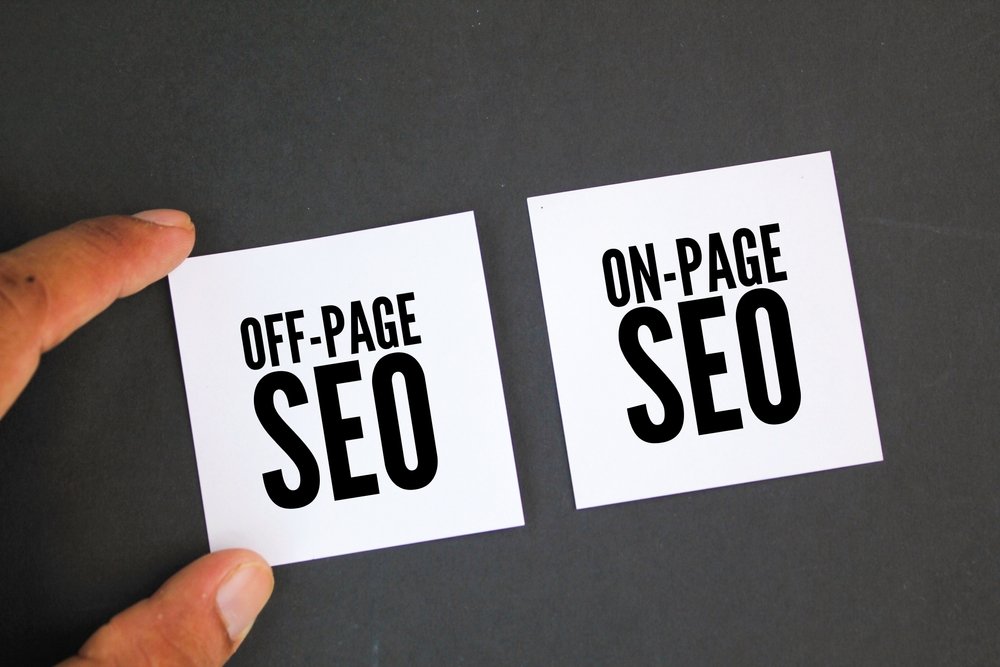A better ranking in the search engine’s list will demand a multi-faceted approach to SEO. Both on-page SEO optimization and off-page SEO will play an important role in increasing your site’s presence and authority over the internet. Here is a guide to effective techniques for both on-page and off-page SEO to help you achieve better search engine rankings.
Understanding On-Page and Off-Page SEO
To begin with the techniques, it is crucial to know what on-page SEO optimization and off-page SEO are all about.
This basically means on-page SEO refers to the processes carried out to make improvements to the elements of your website so as to increase the rankings in search engines. These will include optimizing the content, meta tags, images, and even the general structure of the site.
Off-page SEO refers to the activities done outside of your website that influence your rankings in search engines. Essentially, this is about the creation of backlinks, social media engagement, among others, that are supposed to enhance your site’s authority and credibility.
On-page Optimization Strategies
1. Keyword research and optimization
Keyword research is what basically gets on-page optimization right for effective SEO. Do your keyword research, first and foremost, so as to identify key terms which your target audience seeks or searches for and bring it into your content in as organic a manner as you can. Make sure that the title tag and even the headings contain your primary keyword but mostly also within the body copy itself. The issue with keyword stuffing not only hurts your rankings; it affects the overall readability of your page 2. Content creation of high quality
Content is the king in on-page SEO. Write high-quality, informative, and engaging content that provides value to your readers. Your content must address the needs and interests of your target audience and incorporate relevant keywords. Ensure to update your content regularly for freshness and relevance.
3. Optimize Meta Tags
Meta tags also include title tag and meta description. This is the largest part of on-page optimization in search engines. Writing catchy title tags and descriptions with the inclusion of keywords to your page in the best possible manner describe the page’s content in front of search engines for relevance purposes, thereby aiding in the click-through rate as well.
4. Improve Page Loading Speed
Another crucial on-page SEO aspect is page load speed. Generally, slow-loading websites are the primary reasons for both user experience and search engine rankings. So, you can optimize your images, cache them, and reduce the codes to speed up your website’s load speed. Google PageSpeed Insights will show you which elements need to be improved.
5. Mobile-Friendly Design
Being accessed more and more through mobile devices, your website needs to be mobile-friendly for good on-page SEO optimization. Leverage responsive design with the best use from different screen sizes and devices. In addition, Google favors mobile-friendliness for mobile-first indexing, resulting in better search results.
6. Internal Linking
Internal linking helps search engines understand the site structure and spreads page authority throughout your entire website. Use descriptive anchor text and link to other relevant pages within your content. It has made it more user-friendly and clicks around, hence people who support your overall effort in SEO
7. Optimize images and alt text
Images enrich the user experience, but they also affect on-page SEO. Optimize your images by reducing file size and using descriptive alt text that is rich with keywords. This allows the search engines to understand your images and may help to improve your rankings in image searches.
8. Structured Data Markup
Schema markup, or structuring data, is done to better understand the intent of a page by making search engines interpret the page content in a better light. It helps in enabling schema markup for adding value to reviews, events, and products, thereby fetching rich snippets that boost your search visibility.
Off-page SEO Techniques
1. Building high-quality backlinks
The most critical technique for off-page SEO involves getting quality backlinks from trusted and relevant sites. Many people get lots of help through guest blogging, influencer collaboration, or producing content others will wish to link to. Such high-quality backlinks for your site prove that search engines view it as trustworthy and authoritative.
2. Social Media Participation
Social media engagement would thus indirectly help your efforts toward off-page SEO in some way because you have put up your content for maximum traffic and increased awareness, which then nudges these people to share what they read on social media as well. Interacting and engaging with your customers helps build an online existence about you, including that kind of reputation.
3. Maximize Online Reviews
Off-page SEO is associated with online reviews and ratings, which impact the credibility and trustworthiness of your site. Encourage satisfied customers to leave reviews on platforms such as Google My Business, Yelp, and industry-specific review sites. Always respond to reviews to prove that you value customer feedback and also address concerns.
4. Industry Forums and Communities
Part 3: Engage with Industry Forums and Online Communities Build Your Authority, Drive Traffic, Participate in meaningful discussions to share valuable insights while inserting links to relevant material on your website when appropriate. This helps in building relationships and letting authoritative sources earn you backlinks.
5. Monitoring and Management of Your Reputation Online
Your off-page SEO can be affected by your online reputation. You could monitor mentions of your brand and respond to any negative feedback or misinformation. Use tools such as Google Alerts and social listening tools to know more about what is being discussed about your business online.
6. Influencer Marketing
Influencer engagement can be very effective off-page SEO technique. A good influencer helps increase your reach to a wide number of individuals, lends you credibility and helps bring backlinks to your site. Identify such people whose fan following happens to be the one who you need as a customer. After that co-content creates with influencers on products or with other content
7. Study Competitor’s strategy
Learn what your competitors do in terms of off-page SEO. Analyze the backlink profiles, social media activities, and content strategies for opportunities and gaps. You can then make improvements in your off-page SEO strategy to outsmart your competition.
Conclusion
Balancing effective on-page SEO with strong off-page SEO moves you to a better page rank in search engines while driving more traffic to the website. With optimum keyword optimization, quality contents, technical enhancements, and strategic off-page activities, site visibility, authority, and overall SEO performance can be heightened, and keeping track of these, combined with current best practices, it climbs over time.



